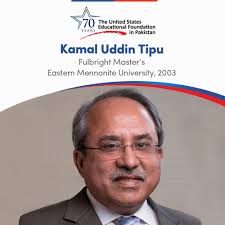WPFD 2006
RMNP marked World Press Freedom Day 2006 a seminar on the topic Media Development & Poverty Reduction with a sub-title Do not Lock Up The Information. It was held in Jinnah Hall Ahmedpur East on 3 May 2006 and chaired by the Convenor of the Rural Media Network, Ehsan Ahmed Sehar. The District Nazim of Bahawalpur, Chaudhry Tariq Bashir Cheema, said that a free press helped build more effective and stronger institutions. By fostering transparency and accountability in both public and private spheres, the media in poor countries were being increasingly recognized as a development “good” capable of contributing to improved government accountability and more effective use of resources. He questioned the connection between press freedom and economic poverty? And answered himself that a large part of connection lies with corruption and the fight against it. Studies by the World Bank showed that the higher the level of press freedom in countries, the greater the focus of scarce resources on priority development issues. The District Nazim claimed that the present government had given full liberty to the press in Pakistan, dozens of new TV channels and FM radio stations in the private sector had been opened, no journalist was in jail in the country. He praised the Rural Media Network for organising a World Press Freedom Day seminar for the fifth consecutive time in this remote area. He announced funding for the upgrade of Jinnah library and the creation of a computer script in the Seraiki language.
Ehsan Ahmed Sehar
Earlier RMNP’s Convenor Ehsan Ahmed Sehar said that out of a global population of six billion people only 1.2 billion lived in countries with access to a free press; 2.4 billion had access to a partially free press. This meant that around eighty percent of the world’s population did not have access to a fully free press. These imbalances reflected broader imbalances between rich and poor countries, he added. He also said that some of these broader imbalances include one billion of the total world population owning 80 percent of global wealth while another billion struggled to survive on a dollar day. Two billion people had no access to clean water,150 million children never got the chance to go to schools and more than 40 million people in the developing countries were HIV Positive with little hope of receiving treatment. Ehsan Ahmed Sehar said that by denouncing corruption both in public and private sectors, the press can contribute to the development of good governance practices. It can improve a country’s chances of attracting foreign investment with positive outcomes for the whole economy. He cited the example of Bangladesh where media had played a significant role in exposing corruption, particularly in the financial sector. Fateha was offered for the departed souls of 11 Pakistani journalists who were killed last year in the Azad Kashmir earthquake while two others were shot dead in the line of their duty on the Afghan Pakistan border.
Mazhar Rasheed of the National Press Union
Later Nazim Bahawalpur Chaudhry Tariq Bashir Cheema presented the First Sadiq Press Freedom Prize of Rs 5,000 to the General Secretary of the National Press Union, Mazhar Rasheed, in recognition of his services in the defence of press freedom in Mubarakpur during the last four years. The Sadiq Press Freedom Prize was instituted by the Rural Media Network with financial contribution by the Amir of Bahawalpur, Nawab Salahuddin Abbasi.




